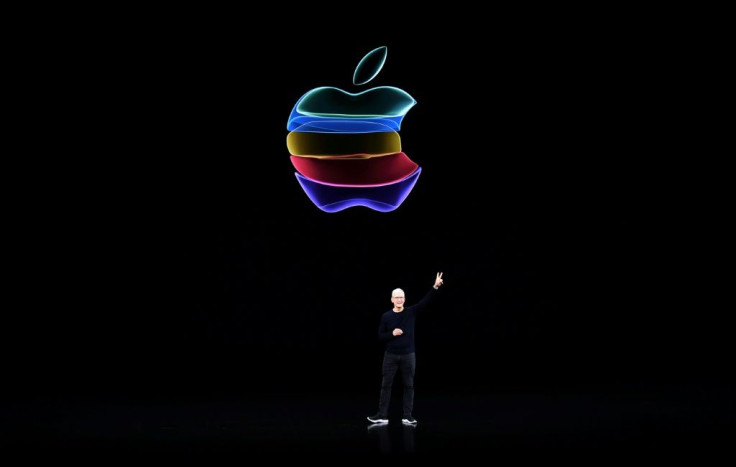Apple Is Quietly Expanding Its Artificial Intelligence Ecosystem

Apple (NASDAQ:AAPL) recently acquired Xnor.ai, a Seattle-based start-up that develops low-power, edge-based artificial intelligence tools. Apple didn't disclose the terms of the deal, but GeekWire claimed that the deal was worth about $200 million.
Apple reportedly paid a similar amount for Turi, another Seattle-based company that specializes in machine learning and AI, in 2016. Apple also recently acquired British AI start-up Spectral Edge for an undisclosed sum.
But those acquisitions are just the tip of Apple's AI iceberg. Apple has acquired over 20 AI companies since 2010, according to CB Insights, surpassing the number of AI acquisitions by Alphabet's (NASDAQ:GOOG) (NASDAQ:GOOGL) Google, Microsoft, Facebook, and Amazon (NASDAQ:AMZN). Apple also poached Google's AI and Search chief John Giannandrea in 2018.
All these moves indicate that Apple is aggressively expanding its AI ecosystem, even though its applications are less visible than Google and Facebook's implementation of AI for targeted ads, or Amazon's use of AI for sorting product listings. Let's delve into Apple's AI plans and see how they could shape the tech giant's future.
It's all about the iPhone -- for now
Over the past decade, Apple's AI acquisitions mainly focused on improving the iPhone with new features. It acquired Siri, the core virtual assistant of iOS, in 2010. Its acquisitions of computer vision companies like RealFace -- along with its development of first-party chips -- led to the launch of FaceID and other face-tracking features in 2017.
Apple's purchase of Xnor.ai complements those investments. Xnor.ai's Edge AI engine previously enabled the Wyze camera -- which competes against the pricier Amazon Ring and Google Nest Cam -- to recognize people, pets, and objects. But unlike Ring and Nest Cam, which process images remotely on the cloud, the Wyze camera processes them locally inside the camera for better privacy and security.
Therefore, Xnor.ai's tech could enhance the iPhone camera and its face-tracking capabilities without sacrificing a user's privacy. It could also improve Siri's capabilities, which are reportedly hobbled by Apple's reluctance to collect as much user data as Google or Amazon.
Xnor.ai claims that its Edge AI engine runs ten times as fast with 15 times more memory than cloud-based systems. Integrating that technology with Apple's own Bionic chips, which already process AI tasks with its Neural Engine, could enable iPhones to process Siri requests and facial recognition features offline.
But it also strengthens its services ecosystem
Apple is relying heavily on the growth of its services ecosystem -- which includes Apple Music, Apple Arcade, Apple TV, Apple Pay, and other services -- to offset its slower sales of iPhones, which generated 55% of its revenue last year. Apple's services unit only generated 18% of its revenue.
If Apple wants to lock users into those services, it should closely track their preferences. However, Apple CEO Tim Cook has also repeatedly pledged that the company wouldn't aggressively track and mine user data like Google or Facebook.
Therefore, planting a "walled garden" for its user data, which can only be processed locally on devices or with limited support from the cloud, would enable Apple to optimize its services content for its users while keeping its promises regarding user privacy. Buying companies like Xnor.ai could enable it to achieve that goal.
Looking further ahead, Apple could apply its acquired AI technologies to healthcare apps on Apple Watch, connected vehicles via CarPlay, or the augmented reality market, where it retains a foothold with its ARKit platform for app developers. An upgraded Siri could also make the HomePod -- which lags behind Amazon and Google in the smart speaker market -- a worthy buy.
The key takeaways
Apple's investments in AI won't boost its near-term revenue growth, but they'll strengthen its hardware devices and tether more users to its services ecosystem. Those improvements should widen Apple's moat and give it an edge against Google's fragmented universe of Android devices.
This article originally appeared in the Motley Fool.
Leo Sun has no position in any of the stocks mentioned. The Motley Fool owns shares of and recommends Alphabet (A shares), Alphabet (C shares), Amazon, Apple, Facebook, and Microsoft and recommends the following options: long January 2021 $85 calls on Microsoft and short January 2021 $115 calls on Microsoft. The Motley Fool has a disclosure policy.





















